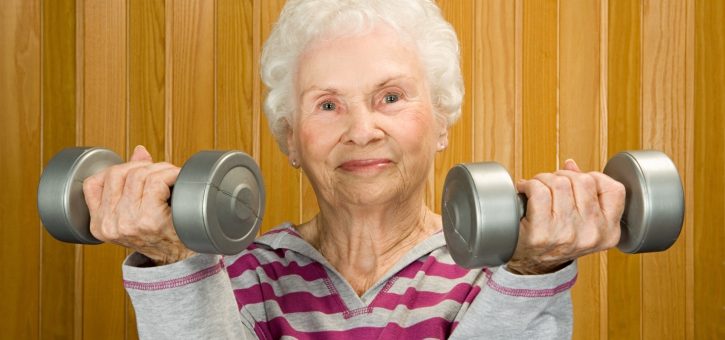As a person ages, their body begins to change. Senior injuries can take much longer to heal, even if the injury is a minor one. Falls and car accidents are two of the most common causes of injuries in seniors. When physical therapy is ordered, great care must be taken to properly evaluate the injury and create a treatment plan that takes into consideration the physical limitations of the senior patient.
Broken Bones
When a person breaks a hip, ankle or other bone, physical therapy normally begins after the bone has healed. Many doctors recommend exercising other parts of the body during the healing period to prevent the patient from losing muscle strength.
Exercising the rest of the body helps to maintain a level of activity that will be necessary when physical therapy begins. Once the bone is healed and therapy begins, the process will be slow and carefully monitored to prevent muscle strain and fatigue. It will take time for the patient to rebuild their strength and improve their range of motion and mobility. Senior injuries that involve broken bones must be carefully treated to prevent the loss of range of motion or mobility.
Exercising the rest of the body helps to maintain a level of activity that will be necessary when physical therapy begins. Once the bone is healed and therapy begins, the process will be slow and carefully monitored to prevent muscle strain and fatigue. It will take time for the patient to rebuild their strength and improve their range of motion and mobility. Senior injuries that involve broken bones must be carefully treated to prevent the loss of range of motion or mobility.
Soft Tissue Injuries
Soft tissues injuries can be extremely painful, especially for a person that has little body fat. Light massage and gentle movements may be the best option for the first few sessions of physical therapy. Severe injuries can often cause a person to “go easy” on the area or not move it very much at all to keep it from hurting.
During physical therapy, some pain will be natural, but don’t over-do it. If the injury remains painful, there may be something more than just a soft tissue injury. Soft tissue injuries can go deep into the body. When working with a physical therapist, it is important for the patient to be honest about where the pain is and the level of pain they are experiencing. If the injury was received in a fall or car accident, the patient should be seen by a physician to determine the full extent of their injuries.
During physical therapy, some pain will be natural, but don’t over-do it. If the injury remains painful, there may be something more than just a soft tissue injury. Soft tissue injuries can go deep into the body. When working with a physical therapist, it is important for the patient to be honest about where the pain is and the level of pain they are experiencing. If the injury was received in a fall or car accident, the patient should be seen by a physician to determine the full extent of their injuries.
Dislocations
Dislocations can be the result of a fall, slipping in the bathtub or trying to lift something that is very heavy. Once the bone has been put back into place, the area will be extremely sore for a few days. Senior injuries that involve a bone dislocation may require an x-ray to properly diagnose the extent of the injury. While it is important to allow for a few days of healing time, it is also important that physical therapy begin as soon after the injury as possible to prevent muscle loss and weakness. Gentle movements and massage that strengthen the tissues around the injury help not only strengthen the muscles. but also help to eliminate inflammation that can result in the build-up of scar tissue.
Sprains
Sprains are painful, but as long as they are properly braced, the patient can still move them to some degree. Although it is important to not put excessive amounts of weight on a sprained area, light exercise and massage will actually help the area to regain its strength and heal much faster. Don’t over-do it or stress the injured area, as that could lead to further damage and more pain. When sprains are properly bandaged, the patient can begin to resume their normal activities as long as they do not push their level of activity too far.
When physical therapy is required, the patient must follow the doctor’s orders. Doing too much too soon can lead to further injury and increase the amount of time necessary for the injury to fully heal. The physical therapist will continually evaluate the patient’s progress and can adjust the treatment plan as necessary to ensure they stay on track and the healing is complete before the doctor releases them.
When physical therapy is required, the patient must follow the doctor’s orders. Doing too much too soon can lead to further injury and increase the amount of time necessary for the injury to fully heal. The physical therapist will continually evaluate the patient’s progress and can adjust the treatment plan as necessary to ensure they stay on track and the healing is complete before the doctor releases them.
Multi-Care Medical
Visit the professionals at Multi-Care Medical to find out how we can help you get back on the path to wellness and healing. We have three convenient locations to choose from in Cape Coral, Fort Myers and Pembroke Pines, Florida.
